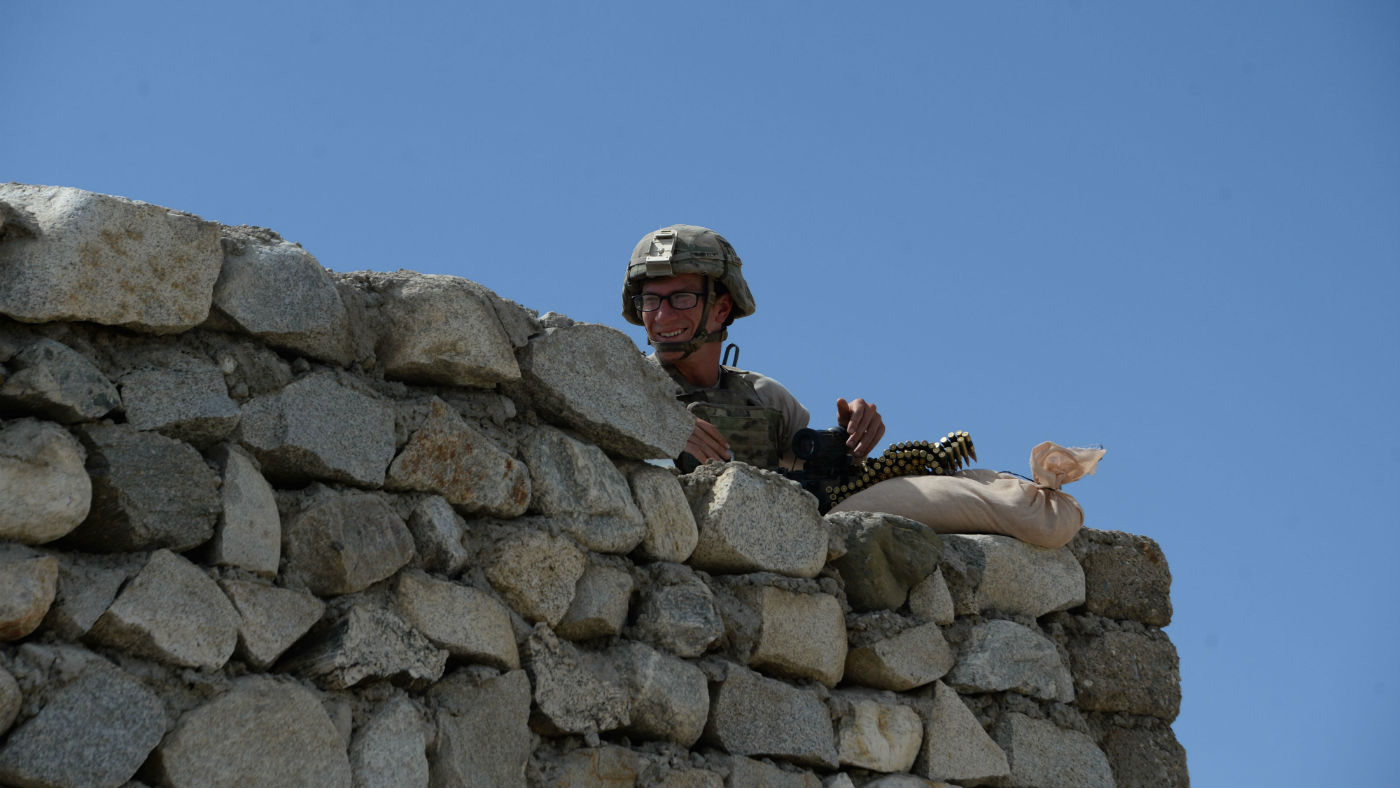Should the UK and US send more troops into Afghanistan?
A resurgent Taliban has brought a spike in civilian deaths and a rising threat to the government

A free daily email with the biggest news stories of the day – and the best features from TheWeek.com
You are now subscribed
Your newsletter sign-up was successful
Afghanistan's spiralling death toll from terrorist attacks is lending a new urgency to questions about whether the UK, US and their allies should do more to prop up the country's fragile government.
A car bomb in Kabul on Monday killed up to 35 and wounded more than 40, reports Reuters and The Guardian says civilian deaths in the 16-year civil war are at a record high with the Taliban resurgent.
There are 13,000 Nato troops currently in the country, 8,400 of them American; the UK, with 500 service personnel in Afghanistan, plans to send 85 more in training capacities, Politics Home says.
The Week
Escape your echo chamber. Get the facts behind the news, plus analysis from multiple perspectives.

Sign up for The Week's Free Newsletters
From our morning news briefing to a weekly Good News Newsletter, get the best of The Week delivered directly to your inbox.
From our morning news briefing to a weekly Good News Newsletter, get the best of The Week delivered directly to your inbox.
More troops are a "tactical necessity", claims former Nato commander James Stavridis writing in Time. He highlights estimates that Taliban influence could now extend to some 40 per cent of the country.
US media reported in June that almost 4,000 more American troops will be deployed. But Rebecca Zimmerman, policy researcher at RAND Corporation, told Bloomberg TV that "if 100,000 troops (the number under Obama in 2010) weren't able to be decisive in a combat sense I don't think we can say a few thousand extra troops are going to be able to do that… we really need to focus on building a more stable Afghan government."
An unpopular influx of foreign soldiers could even be "adding wood to a fire", says Al Jazeera - particularly as the Taliban refuses to come to the negotiating table until alien troops are out of the country.
But the real problem, according to the National Interest website, is that since invading in 2001 America's objectives remain unclear. "How is it that Washington still does not have an achievable strategy? And worse, why aren’t elected officials debating and voting on policy?" Asks retired brigadier general Rob Givens.
A free daily email with the biggest news stories of the day – and the best features from TheWeek.com
Last week, President Donald Trump finally appointed an ambassador to Afghanistan - longtime diplomat and current Turkey ambassador John Bass.
That might finally give US policy a focal point and mouthpiece in a country so difficult to handle it has become known as the "Graveyard of Empires".
-
 Buddhist monks’ US walk for peace
Buddhist monks’ US walk for peaceUnder the Radar Crowds have turned out on the roads from California to Washington and ‘millions are finding hope in their journey’
-
 American universities are losing ground to their foreign counterparts
American universities are losing ground to their foreign counterpartsThe Explainer While Harvard is still near the top, other colleges have slipped
-
 How to navigate dating apps to find ‘the one’
How to navigate dating apps to find ‘the one’The Week Recommends Put an end to endless swiping and make real romantic connections
-
 Epstein files topple law CEO, roil UK government
Epstein files topple law CEO, roil UK governmentSpeed Read Peter Mandelson, Britain’s former ambassador to the US, is caught up in the scandal
-
 Iran and US prepare to meet after skirmishes
Iran and US prepare to meet after skirmishesSpeed Read The incident comes amid heightened tensions in the Middle East
-
 Israel retrieves final hostage’s body from Gaza
Israel retrieves final hostage’s body from GazaSpeed Read The 24-year-old police officer was killed during the initial Hamas attack
-
 China’s Xi targets top general in growing purge
China’s Xi targets top general in growing purgeSpeed Read Zhang Youxia is being investigated over ‘grave violations’ of the law
-
 Panama and Canada are negotiating over a crucial copper mine
Panama and Canada are negotiating over a crucial copper mineIn the Spotlight Panama is set to make a final decision on the mine this summer
-
 Trump backs off Greenland threats, declares ‘deal’
Trump backs off Greenland threats, declares ‘deal’Speed Read Trump and NATO have ‘formed the framework for a future deal,’ the president claimed
-
 Why Greenland’s natural resources are nearly impossible to mine
Why Greenland’s natural resources are nearly impossible to mineThe Explainer The country’s natural landscape makes the task extremely difficult
-
 Iran cuts internet as protests escalate
Iran cuts internet as protests escalateSpeed Reada Government buildings across the country have been set on fire